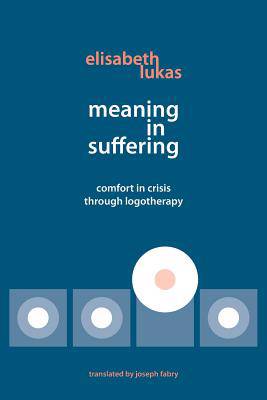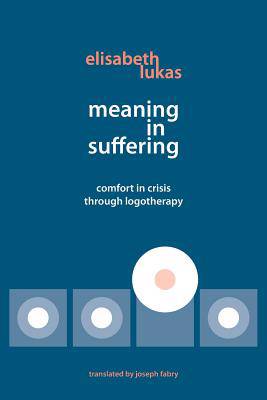
- Retrait en 2 heures
- Assortiment impressionnant
- Paiement sécurisé
- Toujours un magasin près de chez vous
- Retrait gratuit dans votre magasin Club
- 7.000.0000 titres dans notre catalogue
- Payer en toute sécurité
- Toujours un magasin près de chez vous
22,95 €
+ 45 points
Description
This 1986 classic has been renewed with fresh graphics and crisp typesetting. Elisabeth Lukas' artistic discovery of the uniqueness of each individual shines across dozens of case studies and examples; thus she illuminates the potential for meaning in the presence of even intractable pain, guilt, and suffering. Lukas demonstrates a living logotherapy, not by standardized techniques, but by the compassion and insight she brings into each therapeutic relationship. "The true heroes of life are not the triumphant victors, but the defeated who find a ray of hope" (p. 52). As Lukas notes in the introduction: "For thousands of years, people have done pretty well without the science of psychotherapy. Yet, something like psychotherapy has always existed-through persons who, with charisma, persuasiveness, and force of conviction, were able to bring comfort to those looking for help. Such help was usually based on a specific philosophy of life. "The afflicted were promised eternal well-being and justice in the hereafter, their suffering was presented as a test on their way to happiness, or philosophical-ethical images were invoked to make blows of fate bearable. Psychotherapy was religion and vice versa. "This embeddedness in mysticism made it difficult for psychotherapy to find a scientific approach. Today, if we try to find rational explanations for irrational behavior and offer rational help for irrational psychological problems, we stand on a narrow ridge between two abysses: On the one side lies the danger of reverting to mysticism; on the other, slipping into a mechanized manipulation of the human person. "Has psychology, on its long development through magic, exorcism, trickery, and fanaticism, finally attained the status of science? In recent decades, great strides have been made in that direction. Successes were conspicuous and resulted in a great variety of tools in a giant psychological workshop to serve people, but unfortunately the specifically human dimension--the spirit--was left out. "Psychotherapy without magic" has been replaced by "psychotherapy without spirit." What was gained in the field of science was lost from humanity. Psychotherapists may choose from a great number of methods, but are forced to walk on that narrow ridge between old views and new perspectives, between speculative interpretations and human programming. It is a path illuminated by alarmingly few firm criteria. "This book is written for those who trust psychotherapy to find comfort. The trust of patients is valuable but must not be blindly given, or they may be pushed into one of the abysses on either side. They may fall under the spell of speculative [psychoanalytic] hypotheses from which they cannot free themselves, or they may be wrecked by a cold, impersonal [behavioral] conditioning process because they no longer can sense the meanings of their lives. "The book is also for psychotherapists who walk that narrow ridge, weighed down by responsibility for those who trust them. Few are the guideposts, many the contradictory theories, the confusions, the criticisms. What school are they to believe, what concepts to make their own? "This book suggests a path for both lay reader and professional, a path through the maze of psychological schools to a psychotherapy that no longer is a myth. To do so, it must include the human spirit, combine science and humanity; in so doing, it can justify our trust, especially the trust of the suffering person. The value of a psychotherapy is tested by what it can do for those who suffer. Where help is no longer possible, comfort must be given; where no comfort is possible, any psychotherapy is useless."
Spécifications
Parties prenantes
- Auteur(s) :
- Traducteur(s):
- Editeur:
Contenu
- Nombre de pages :
- 140
- Langue:
- Anglais
Caractéristiques
- EAN:
- 9780982427873
- Date de parution :
- 01-12-14
- Format:
- Livre broché
- Format numérique:
- Trade paperback (VS)
- Dimensions :
- 152 mm x 229 mm
- Poids :
- 213 g

Seulement chez Librairie Club
+ 45 points sur votre carte client de Librairie Club
Les avis
Nous publions uniquement les avis qui respectent les conditions requises. Consultez nos conditions pour les avis.





